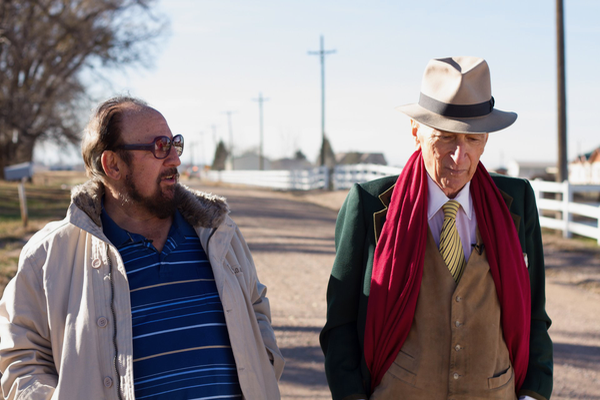Movie review by Greg Carlson
Now playing on Netflix instant watch, “Voyeur” is the curious story of strange bedfellows Gay Talese — the once influential and celebrated journalist — and Gerald Foos — a creepy peeper who spied on the guests at his hotel, chronicling their behavior, erotic and otherwise, in a quasi-scientific record book. Filmmakers Myles Kane and Josh Koury don’t entirely corral the lurid proceedings into a fully satisfying examination of any given one of their smorgasbord of themes, but the movie’s self-awareness stitches up several of the fraying edges.
Some of the film’s framework is provided by the print history of the weird Foos/Talese acquaintance. Entertaining talk show clips of Talese discussing “Thy Neighbor’s Wife,” his 1981 book on sexual practice and behavior in post-World War 2 America, connect the dots to Foos, who contacted the journalist in anticipation of the book’s publication to “confess” to his prurient and illegal proclivities looking at people without their knowledge or consent. Talese smelled a project, and following years of preparation, published “The Voyeur’s Motel” in the April 11, 2016 issue of “The New Yorker.”
Later, a full-length book expansion with the same title spectacularly backfired, as negative reviews and questions of basic fact-checking triggered Talese to disavow his own work (a position he later recanted) and conclude that things he wrote as fact could not necessarily be trusted. Kane and Koury, who enjoy complete access to Talese and Foos throughout their movie, even when the subjects appear to be on the outs with each other, depict the unlikely pairing of the impeccably dressed cosmopolitan and the wheezing baseball card collector as a marriage of opposites bound by a mutual affinity for the spotlight and a parallel penchant for out-of-bounds sexual thrills.
The directors film reconstructions of unwitting travelers observed through the custom-cut ceiling vents in the Manor House Hotel where Foos lurked in Aurora, Colorado. In one surreal vignette, Talese’s necktie dangles down through the gap, and all participants affirm that the writer did indeed join Foos in the act. The ethical questions on this point are not explored as thoroughly as hoped, and the later sections of the film turn to the fallout that strains the partnership, even though Kane and Koury maintain at least the illusion that for a time, Foos and Talese symbiotically fed on what the other could provide.
Had the directors doubled-down on mining the narcissism and outsized ego driving the subjects toward some kind of guaranteed mutual destruction, “Voyeur” might have moved beyond the intriguing but superficial jousting over just how much of Foos’ tale is true. At 85, Talese has now seen his once mighty reputation dismantled by the carelessness of his reporting on the Foos story, his sexist comments on women writers, and his utter lack of comprehension and sensitivity in statements regarding Kevin Spacey’s predatory behavior and history of sexual assault. “Voyeur” will not do anything to rehabilitate his image as a literary celebrity capable of bringing the reader into the orbits of Joe DiMaggio, Frank Sinatra, and others.
